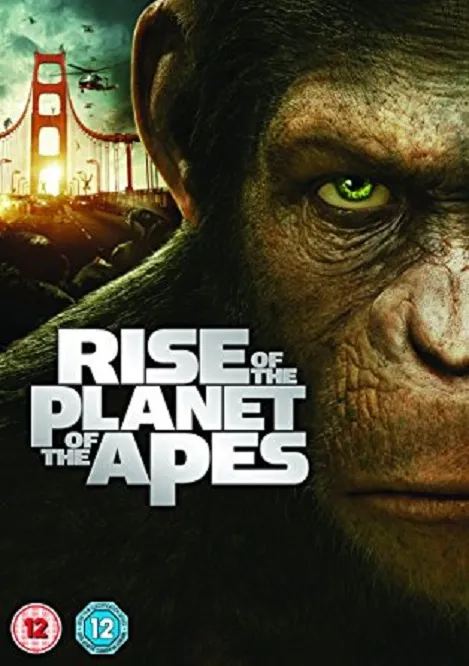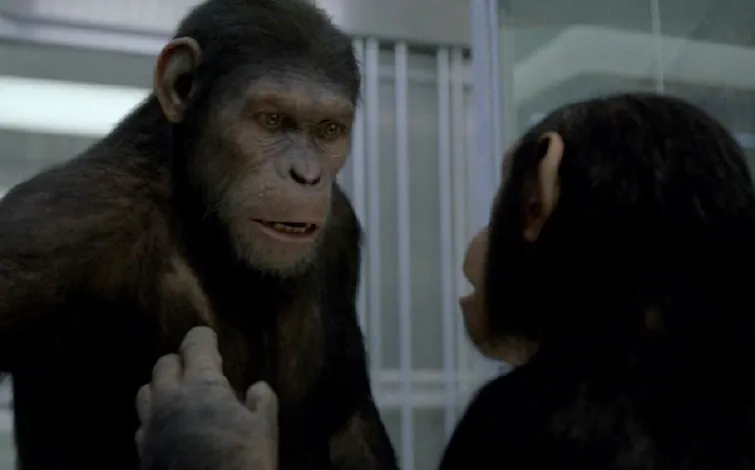Honestly, I do not know where to start. There was so much opportunity "The Rise of the Planet of the Apes" to be a complete catastrophe that I am surprised that it is not only a complete tragedy, but it is actually a good one that even a meaningful film that works on more than one level . He works as a part of the series, works as a fully self-contained warning film, works as a social commentary, and as a psychological story about personal conflict in search of who we are and what it means to belong to a place, community or idea. Links to the previous movies of a series have always been a tame job, especially when it comes to a kind of restart. In this respect, "The Rise of the Planet of the Apes" is doing more than excellent. He neglects most of the sequels of the 1968 first film, where the story of the rise of the monkeys has already been told, as well as Burton's remorse for a remake, but honors the original with links and winks that fans will recognize in a second . Of course, not everything in the movie is perfect, the second part is a bit cumbersome, one or two times are quite overpowered and fake, and some of the apes show little more sense than is necessary before it is protected dramatically. Several images, such as the worker in the primate shelter (Tom "Draco Malfoy" Felton) or the greedy boss of Franco (David Oeilowo), are too obvious and two-dimensional, while others like Freida Pinto are just for beauty.

. And it's not just about meaningful links that are part of the story and mythology of the first movie. And the best thing is that they are not intrusive, but they are hinted subtly in a second plan, like a TV show or a newspaper, like something else (but not to give it up). We see the germ of the characteristics of the monkeys from the original (incidentally, it can irritate those unfamiliar with history) and, most importantly, we see what could potentially play an important role in turning a handful of monkeys into the dominant species on the planet. Outside the context of the franchise, it is obvious that "The Rise of the Planet of the Apes" is a warning film, this time not about the danger of nuclear self-destruction, but always about the modern arrogance of the human species and what its interference in the course of nature can lead to. Of course the idea that science can be dangerous is not at all original, but unlike films like Jurassic Park, for example, where we have a classic case of "divine complex" and a desire for pure profitability, it is not so easy to point here with the finger and say "it's bad," and "yes, if we do such experiments, we deserve to be punished." On such experiments and research, we owe antibiotics and vaccines against smallpox and pediatric paralysis, not to mention that life expectancy has increased by (tens) years, so that the demand for Alzheimer's drug (especially from the point of view of the hero of James Franco, who is not just a scholar aspiring to world glory, but a frightened son who wants to cure his father first) can not be called entirely arrogant and initially wrong. That is, things are not as simple as we want. I also want to point out that some people can see some biblical metaphor in part of the story, but I personally am not among them. The only thing I see is defamation against the gods and their denial and demise - something inevitable with the coming of reason and the realization of all the falsity created only to control and subordinate.

All this would have been empty tales, unless the risk was that the chief hero Caesar, through whose eyes much of the action is going to be a computer-generated image. After Lord of the Rings, King Kong, and Avatar, we did not have much doubt that there might be good enough CG characters to be convincing and complex but still there were fantastic beings, and here we are talking for ordinary monkeys - something that is more difficult to do, because their image is deeply restrained in our minds, and even the smallest defect or falsity would shine like a magnifying glass. The technical side, however, is only half because, as good as it may seem, if the image is hollow, there would again be a jam. Fortunately, Caesar, like many of us, has questions about his origins and wants to find a family or home (which works very well with the film's finale) where he belongs and is free, is also the best developed and full- image throughout the movie. And the connecting element of the two dimensions of Caesar's image is the performance of the genius Andy Serkis, without which they would not be at the same level. Reading this, one may think that "The Rise of the Planet of the Apes" is a kind of push that has deprived the fans of an important part of the series so far, namely entertainment.